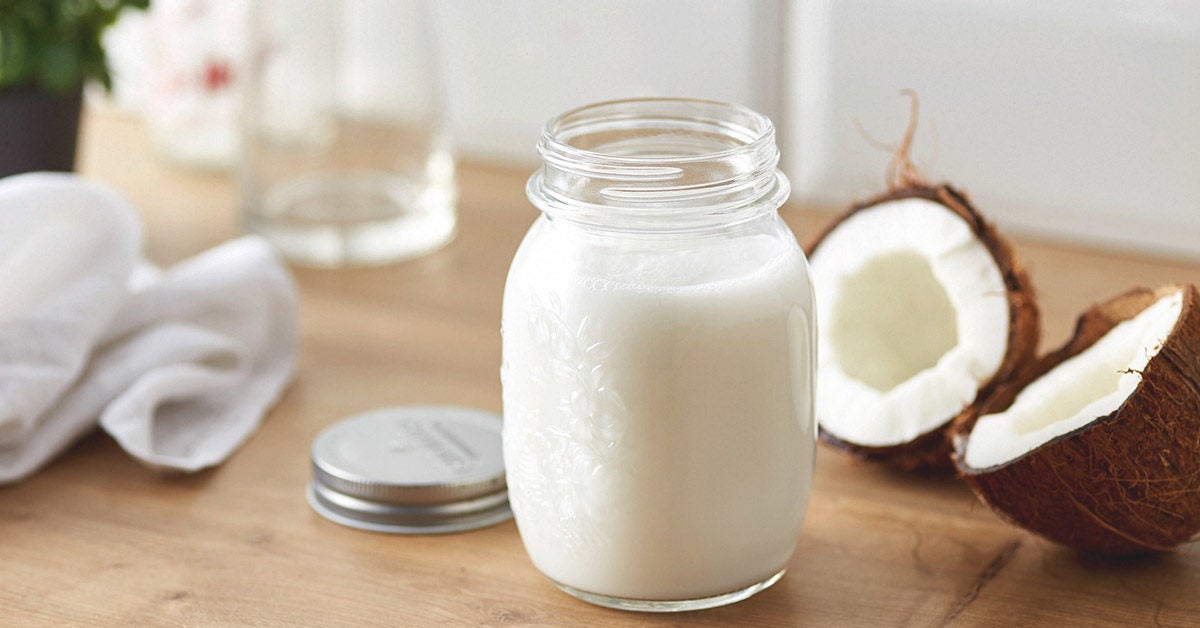Calcium and Vitamin D Fortifications. If you are one of the many people who is lactose intolerant or are concerned with animal welfare issues related to dairy cows than almond milk is preferable.
 Almond Milk Vs Cow S Milk Vs Soy Milk Vs Rice Milk
Almond Milk Vs Cow S Milk Vs Soy Milk Vs Rice Milk
Calcium is very plentiful in cows milk with 305 milligrams in just one cup.

Does almond milk have more calcium than cow milk. While its encumbered in essential vitamins and mineral almond milk is frugal on calories and fat. Therefore many almond milk products are fortified with nutrients to help make it look comparable to cows milk. Almond milk is also not a good source of calcium.
However many brands of almond milk are supplemented with calcium vitamin A. Daily consumption of almond milk supplies the body with nutrients like vitamin E zinc fiber manganese calcium potassium magnesium iron phosphorous and selenium. Cows milk on the other hand is naturally rich in protein and calcium and has been consumed safely for centuries.
However there are wide nutritional differences depending on the type of product and the brand. When you choose almond milk that is unsweetened you get 30 calories per cupBut 90 calories are found in one cup of skim cows milk. Cows milk does provide a pretty impressive amount of nutritional value.
Many food companies fortify almond rice or soy milk with amounts of calcium roughly similar to cows milk. 124mg 12 RDA Almond milk and skimmed cows milk are nutritionally very similar. There are a number of varieties of almond milk on supermarket shelves and whilst some may have added calcium on average cows milk contains about 40 more calcium compared to almond milk.
Both of these beverages can be incorporated into a healthy diet but cow milks high saturated fat content means it should be used in moderation. When you choose one-percent milk you have 110 calories while two-percent provides 130. Choline is also found in cows milk which is a nutrient that helps with memory muscle development and sleep.
One six-ounce serving of fresh salmon offers 340 milligrams of calcium while a five-ounce serving of canned salmon has 350 milligrams the bones in the canned stuff pack in more calcium. Almond vs soy milk. One reason why is that most almond milk has fewer calories and less saturated fat cholesterol sodium and sugar than cows milk.
Therefore homemade or unfortified soy almond and rice milk should not be used to replace cows milk as a source of calcium. There are only 2 milligrams of calcium in an 8 ounce cup of plain almond milk and less than 1 milligram is found in rice milk. 2 The Australian Dietary Guidelines recommend that we include adequate amounts of dairy foods including milk cheese and yoghurt in our diets.
Theyre lower in calories than even nonfat cows milk but have the same amount of fat about 2 grams per cup as 1. Almond milk contains a good amount of calcium only when its fortified. Almond milk is naturally lactose free which can help those with digestive issues.
Even though almonds are a good source of protein almond milk is not. Calcium is very important for bone health blood health and our teeth. Some of the calcium fiber and protein is lost in this process.
Cows milk dairy and other plant-based beverages including soy milk and almond milk all can be healthy choices. This is the same form that occurs naturally in milk. It also typically has more potassium fiber iron vitamin E phosphorus and magnesium.
Calcium and Vitamin D. One serving of almond milk means an intake of 40 calories which is in sharp contrast to whopping 146 calories from regular milk. It contains a substantial amount of calcium as well so substituting it for dairy will likely have minimal impact on the bodys calcium levels.
Thats because almond milk is a synthetic product designed to resemble milk. And if neither cows or almond milk. Almond milk may not contain the same amount of calcium that cows milk does but it still provides thirty percent of the recommended daily amount and twenty-five percent of the recommended daily intake of vitamin D.
Cows milk have more calcium than almond milk. Things that are important to focus on are fat content protein calcium and. It delivers about 30 of your daily need for calcium and 25 to 45 of vitamin D in each serving.
Many almond milk producers enrich their milks. The calcium added to almond milk is usually tricalcium phosphate. After fortification the amount is approximately equivalent than cow milk.
The fat and salt content are virtually identical and while cows milk has more protein its still too little to. Dairy milk outperforms almond. Generally you can break down the benefits by reviewing the nutritional information for each beverage.
Each 8-ounce cup of plain almond milk contains a meager 2 milligrams of calcium and less than 1 milligram is found in rice milk. Although almonds are a fairly good source of calcium almond milk is not naturally high in this mineral. Therefore homemade or unfortified almond and rice milk should not be used to replace cows milk as a source of calcium.
One reason people prefer almond milk is that it generally has les calories than in traditional cows milk although it depends on the milk you purchase and the fat content. One of the biggest dietary benefits is calcium. AAlmond milk and other nut milks are made from ground nuts and water.

/causes-of-nausea-and-vomiting-1298245_v2-e97fe0d71f8e4147856c1daaf48cd323.png)















